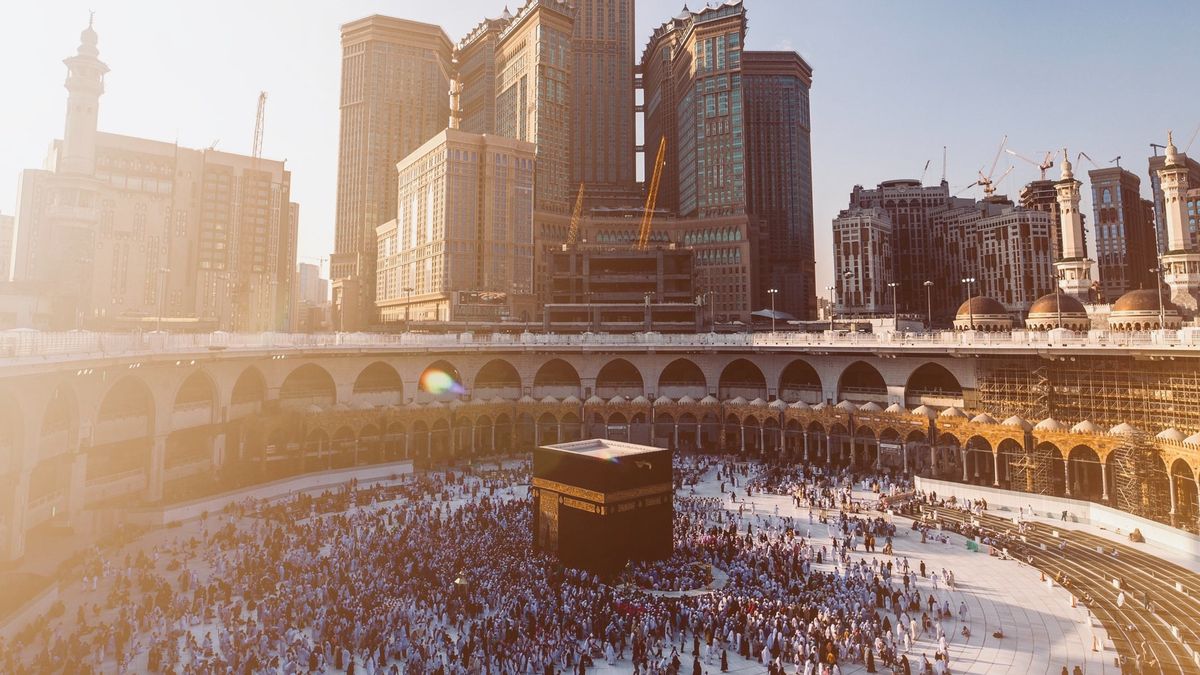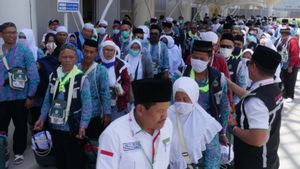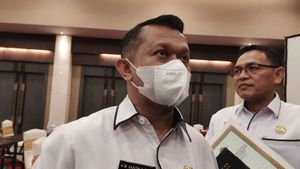JAKARTA - The Ministry of Health carries the jargon "Don't wait to be thirsty" for the 2022 hajj season. The goal is to prevent dehydration in prospective pilgrims in the midst of Saudi Arabia's hot weather.
"Our hashtag this year is Don't Wait to be thirsty because the daily temperature in Saudi Arabia averages 42-45 degrees Celsius," said Head of the Indonesian Ministry of Health's Hajj Health Center Budi Sylvana after attending the Hajj Organizing Committee (PPIH) Release Ceremony at the Republic of Indonesia (RI) Ministry of Health Ceremony Field, Jakarta, Tuesday, May 31 morning.
Budi said that the Indonesian Ministry of Health's advance team had analyzed the weather situation in Saudi Arabia.
"It is estimated that the hot weather will peak up to 55 degrees Celsius. I just came from there, the weather is indeed quite hot," he said as quoted by Antara.
Even Budi said that the scorching sun in Saudi Arabia in June and July 2022 was hotter than the 2019 Hajj situation.
He said that drinking water with a minimum dose of 2 liters per day is effective in preventing the risk of dehydration in Hajj candidates.
"Sometimes the Hajj candidate is not aware, because he does not sweat, he does not feel thirsty because of the humid air," he said.
In addition to not delaying thirst, said Budi, the Ministry of Health also advises prospective hajj pilgrims to avoid unnecessary routines outside the room.
"For example, shopping, making pilgrimages, Umrah many times. We suggest focusing on the obligatory hajj first. Wukuf in Arafah, Musdalifah and Mina, after that just worship elsewhere," he said.
SEE ALSO:
In the same activity, the Secretary-General of the Indonesian Ministry of Health, Kunta Wibawa, appealed to the Hajj Organizing Officer (PPIH) to accompany all prospective pilgrims during their activities in Saudi Arabia.
"PPIH is to be aware of extreme weather changes in Saudi Arabia. Remind worshipers to drink so they don't get dehydrated and don't wait to be thirsty. Congregants limit physical activity outdoors," he said.
Kunta said that the physical fitness of pilgrims is important during the pilgrimage to avoid various high-risk diseases, including COVID-19.
"This year's Hajj is still in a COVID-19 pandemic situation. Of course, the conditions are different from the previous year. The implementation of health procedures is mandatory, both for officers, especially pilgrims," he said.
Kunta added that in the last 15 years, the death rate of Indonesian pilgrims in Saudi Arabia is still very high, around two per 1.000 pilgrims per year. "From the 221.000 quota per year, around 300 to 400 pilgrims die per year," he said.
Kunta asked the PPIH to accompany preventive and promotive efforts so that the health conditions of the congregation are maintained well and reduce the risk of death.
The English, Chinese, Japanese, Arabic, and French versions are automatically generated by the AI. So there may still be inaccuracies in translating, please always see Indonesian as our main language. (system supported by DigitalSiber.id)

















